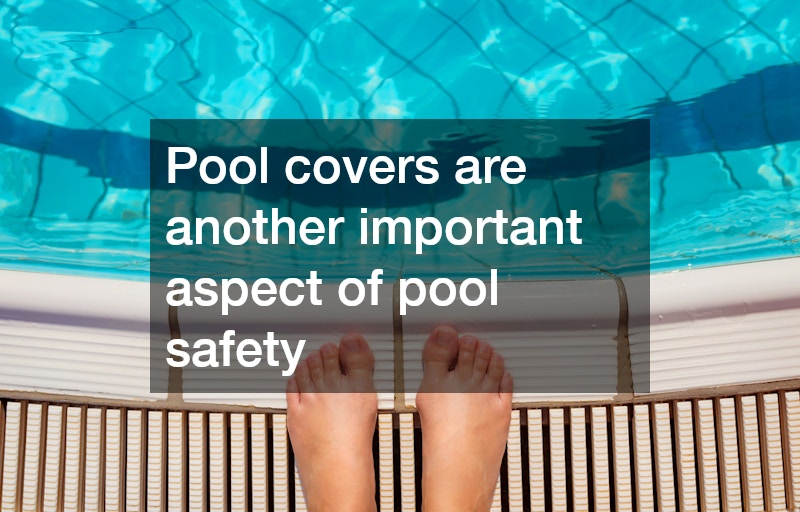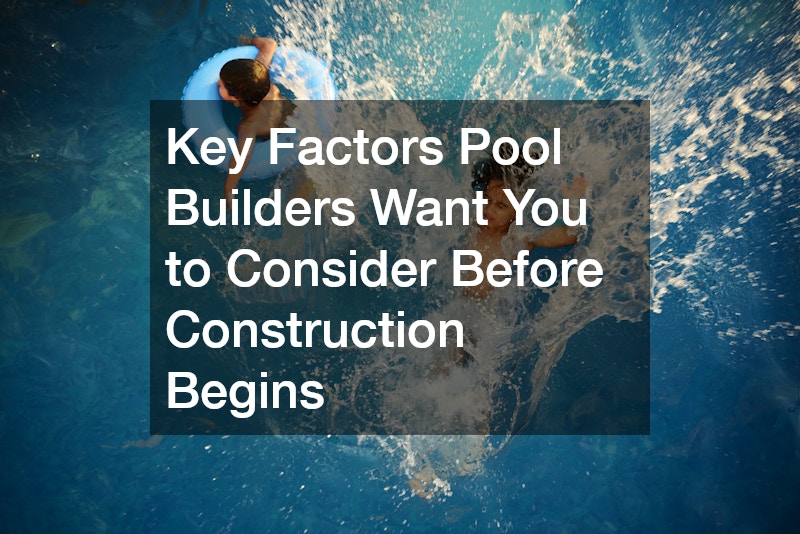There are essential factors that pool builders want you to consider before embarking on your pool construction journey. Understanding these aspects can ensure a smoother process and a successful outcome.
Location
The first aspect to think about is accessibility. You want your pool to be easily reachable from your home and any outdoor living spaces.
This ensures that using the pool becomes a convenient, enjoyable experience. Think about paths, decking, and how you will maneuver between spaces as you plan.
Sunlight exposure is another vital factor. Ideally, you want your pool to receive plenty of sunlight during the day, which not only keeps the water warm but also enhances the aesthetic appeal of your backyard. Strategically placing your pool can help maximize its exposure to sunlight, contributing to an overall inviting atmosphere.
Lastly, be aware of the local regulations regarding pool placement. Many areas have specific guidelines about how far a pool needs to be from property lines, structures, and utilities. Consulting with your pool builder about these regulations beforehand can save you time and money during the construction phase.
Style
Understanding the different types of pools—inground, above ground, fiberglass, concrete, and vinyl—can help you choose the best one that fits your needs and environment. Inground pools are often viewed as the most luxurious option, and they can add significant value to a home. Built into the ground, these pools come in various materials such as concrete, fiberglass, or gunite, giving homeowners multiple options in terms of design and durability. They are also customizable in size and shape, making them flexible for various yards.
Above-ground pools, on the other hand, are typically more affordable and quicker to install, making them an attractive option for those on a budget. They can be easily disassembled and relocated if necessary, providing versatility that inground pools do not offer. However, they may lack the aesthetic appeal and long-term investment value of inground models.
Fiberglass pools boast a smooth finish and often come with lower maintenance needs compared to their concrete counterparts. These pools can be installed faster, as they are prefabricated. Concrete pools, while durable, require a longer installation process and more regular maintenance. Vinyl pools offer a middle-ground alternative, providing a reasonably priced, customizable option with a softer surface. Taking the time to explore each type will guide you to the best choice for your situation.
Safety
Discussing and considering safety measures such as fencing, pool covers, and alarms with your builder can help ensure your pool adheres to necessary safety regulations. Fencing is one of the primary safety measures for any pool. Many local laws require a secure barrier to prevent unauthorized access, particularly for children. Choosing the right type of fence—whether it’s wood, vinyl, or wrought iron—will enhance safety while contributing to the overall aesthetic of your yard.
Pool covers are another important aspect of pool safety. They can protect your pool from debris when not in use and prevent accidental falls. Automatic covers are especially convenient, offering added protection without the need for manual effort. Discussing various styles and their mechanisms with your builder will help you select a cover that best suits your lifestyle.
Alarms are increasingly common safety features that can notify you if someone enters the pool area unexpectedly. These systems can be particularly beneficial for families with young children or pets. Integrating alarms with other safety features like fencing and covers creates a comprehensive safety protocol that ensures peace of mind while enjoying your pool.
Maintenance
It’s vital to consider the long-term maintenance of your pool, which includes regular cleaning, chemical balancing, and equipment upkeep to keep it in top condition. Regular cleaning is essential to prevent dirt and debris from accumulating, which can disrupt the water quality. This includes skimming the surface, vacuuming the bottom, and brushing the walls. Investing in automated cleaning equipment can save you time and promote a more enjoyable swimming experience.
Chemical balancing is crucial for maintaining safe and clean water. Pools require regular checks for chlorine, pH levels, and alkalinity to ensure that they remain safe for swimmers. A consistent maintenance schedule is key to avoiding costly repairs in the future and ensuring that the pool remains a healthy space for fun and relaxation.
Lastly, equipment upkeep—such as maintaining the pump, filter, and heating system—is vital for the longevity of your pool. Regular inspections can help you catch potential issues before they become expensive repairs. Work with your pool builder to develop a comprehensive maintenance strategy that suits your pool type and your personal needs.
By keeping these key factors in mind and collaborating closely with your pool builder, you can ensure a successful construction process and enjoy your pool for many years to come. Investing time and effort in planning will pay off with a beautiful and functional addition to your home.

